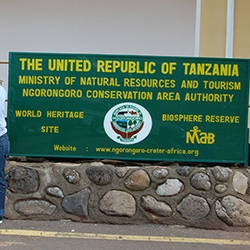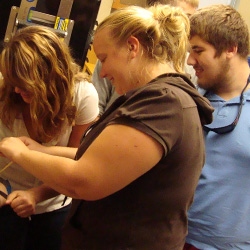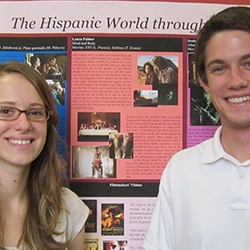Designing Medical Technology for the Developing World
Getting your temperature and pulse taken in the doctor’s office seem like routine tasks. Many parents even complete these tests at home. In a country with so much medical technology, it is hard to imagine life without our luxuries. However, developing countries lack some of the basic medical instruments that keep us healthy. Bioengineering students are working on a project to create affordable medical instruments for developing countries, specifically focusing on Tanzania. While healthcare is improving in these countries, they still lack much of the medical technology found in the United States, and generally use outdated models donated from other countries. This Creative Inquiry team, led by Clemson engineering professors Dr. Delphine Dean and Dr. John DesJardins, aims to create inexpensive, easy-to-use medical technology for the countries that need it the most.
This team is crafting a number of medical products, ranging from a neonatal heating device for hospitals to an affordable glucose monitor for poor villages. Senior team member Suzanna Langworthy says, “We take concepts from our everyday line of medical care and design a device or tool that can accomplish the same goal, but that is cheaper, easier to use, can be easily implemented, and can be made locally to enhance self-sufficiency.” The education for healthcare workers in developing countries is often limited, so it is vital that they have devices that they understand how to use, but at the same time are comparable to higher-end equipment.
The students have the freedom to design and work on any project that interests them, and as a team they are developing a number of problem-solving technologies. For example, Tanzania has an infant mortality rate ten times that of the United States, mostly caused by failing incubators. This team designed a low-cost temperature monitor that detects the temperature of infants and a heating device to regulate their body temperature. Another project constructs blood glucose monitors, which are an important preventative technology. These machines provide diabetes patients with a way to control their disease to prevent further health complications. Other projects include a blood volume indicator and a bacterial sensor for detecting gastrointestinal diseases, such as typhoid and cholera.
While this project allows students to learn the fine points of producing medical technology, it also emphasizes bettering healthcare around the world. Some team members have had the chance to travel to Tanzania and tour the hospitals. This helped them determine which devices are most essential to create. As Britton McCaskill remarks, “In the long-term, we hope to provide developing countries the capacity to be self-sufficient in the healthcare industry and reduce their dependence on external donations.”
Many students on this team express how rewarding it is to apply their engineering skills in a real world setting to address serious health problems. Kevin Keith’s favorite aspect of this project is how “this Creative Inquiry puts us in a position to impact patients who are often in the most need.” Maglin Halsey also comments, “I quickly learned once I began this Creative Inquiry that there are a lot of things involved with the state of healthcare in the developing world. Obviously, there is no quick-fix to the problems in these areas, but we are hoping to start taking small steps towards improvement. We believe that we have a great foundation to make a difference.” This Creative Inquiry provides Clemson students with knowledge and experience to become skilled professionals in bioengineering through a personally and professionally gratifying program.



